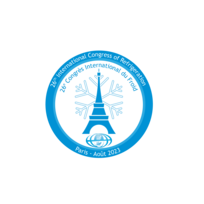
Recommandé par l'IIF / Document IIF
Comparaison des technologies conventionnelles et émergentes pour la liquéfaction de l'hydrogène.
Comparison of conventional and emerging technologies for hydrogen liquefaction.
Numéro : 0868
Auteurs : PEIXER G. F., BORDIGNON J. C., DIAS T. Z., SGANZERLA Y. F., LOZANO J. A., BARBOSA J. R. Jr
Résumé
Hydrogen technologies have gained increased attention and interest over the last years due to their potential impact on the decarbonization of several sectors. However, that potential is yet to be transformed into reality and technical and economic challenges still prevent the technologies from having their expected impact. Storage and transportation are among the biggest challenges. Different alternatives are currently being explored, with liquefaction presenting a promising solution, even though it is still an expensive and energy-intensive process. To this end, an assessment of current technologies was conducted to evaluate conventional and emerging technologies for hydrogen liquefaction. Among the conventional alternatives, component optimization, hybridization with renewable energy sources or new cooling technologies, and scaling up conventional energy cycles are considered the best options for improvement of efficiency and cost reduction. Among emerging technologies, caloric systems are still at a low stage of development, with magnetocaloric systems considered the most promising solutions.
Documents disponibles
Format PDF
Pages : 10 p.
Disponible
Prix public
20 €
Prix membre*
Gratuit
* meilleur tarif applicable selon le type d'adhésion (voir le détail des avantages des adhésions individuelles et collectives)
Détails
- Titre original : Comparison of conventional and emerging technologies for hydrogen liquefaction.
- Identifiant de la fiche : 30031555
- Langues : Anglais
- Sujet : Technologie
- Source : Proceedings of the 26th IIR International Congress of Refrigeration: Paris , France, August 21-25, 2023.
- Date d'édition : 21/08/2023
- DOI : http://dx.doi.org/10.18462/iir.icr.2023.0868
Liens
Voir d'autres communications du même compte rendu (373)
Voir le compte rendu de la conférence
Indexation
-
Thèmes :
Liquéfaction et séparation des gaz;
Froid calorique (froid magnétocalorique, électrocalorique, élastocalorique et barocalorique);
Efficacité energétique, économie d'énergie - Mots-clés : Hydrogène; Liquéfaction; Efficacité énergétique; Froid calorique; Froid magnétocalorique; Cycle thermodynamique; Synthèse
-
High-efficiency magnetic refrigeration using ho...
- Auteurs : TERADA N., MAMIYA H.
- Date : 19/02/2021
- Langues : Anglais
- Source : Nature Communications - 12
Voir la fiche
-
Magnetic refrigerators for hydrogen liquefaction.
- Auteurs : KAMIYA K., NATSUME K., NUMAZAWA T., MATSUMOTO K., SAITO A. T., SHIRAI T., UCHIDA A.
- Date : 21/08/2023
- Langues : Anglais
- Source : Proceedings of the 26th IIR International Congress of Refrigeration: Paris , France, August 21-25, 2023.
- Formats : PDF
Voir la fiche
-
Unique features of liquefaction of hydrogen and...
- Auteurs : BARCLAY J. A., OSEEN-SENDA K., SKRZYPKOWSKI M.
- Date : 07/09/2014
- Langues : Anglais
- Source : 6th International Conference on Magnetic Refrigeration at Room Temperature (Thermag VI). Proceedings: Victoria, Canada, September 7-10, 2014.
- Formats : PDF
Voir la fiche
-
Modeling of hydrogen liquefaction using magneto...
- Auteurs : FENG T., CHEN R., IHNFELDT R. V.
- Date : 11/2020
- Langues : Anglais
- Source : International Journal of Refrigeration - Revue Internationale du Froid - vol. 119
- Formats : PDF
Voir la fiche
-
Réfrigérateur magnétique pour la liquéfaction d...
- Auteurs : MATSUMOTO K., NUMAZAWA T.
- Date : 2015
- Langues : Japonais
- Source : Journal of Cryogenics and Superconductivity Society of Japan - vol. 50 - n. 2
Voir la fiche